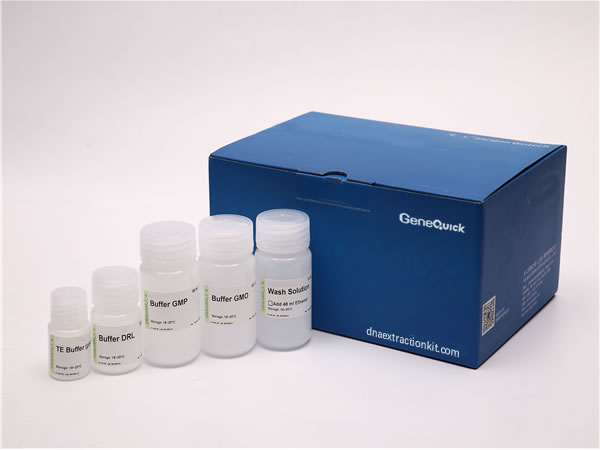What is Animal DNA Extraction Kit for FFPE Samples?
An Animal DNA Extraction Kit for FFPE (Formalin-Fixed Paraffin-Embedded) Samples is a specialized laboratory tool designed to isolate high-quality DNA from animal tissues that have been preserved using formalin fixation and embedded in paraffin wax. This preservation method is commonly used in veterinary pathology, wildlife research, and zoological studies to store tissue samples for long periods, but it can make DNA extraction challenging due to cross-linking and degradation. The kit provides all necessary reagents and materials to efficiently break down the paraffin, reverse the effects of formalin, and purify DNA for downstream applications like PCR, sequencing, or genetic analysis.
This kit is essential for researchers and veterinarians working with archived animal samples, as it ensures that even old or damaged tissues can yield usable genetic material. By simplifying the complex extraction process, it supports studies in animal genetics, disease diagnosis, and conservation efforts, making it a valuable resource in both academic and clinical settings.

Technical Specifications
| Model | Method | Sample | Application | Format | Workflow |
|---|---|---|---|---|---|
| A-S-FFPE-20R | Silica Beads | FFPE Tissue | Animal | 20R | Manual |
| A-S-FFPE-50R | Silica Beads | FFPE Tissue | Animal | 50R | Manual |
| A-S-FFPE-100R | Silica Beads | FFPE Tissue | Animal | 100R | Manual |
| A-S-FFPE-200R | Silica Beads | FFPE Tissue | Animal | 200R | Manual |
| A-S-FFPE-8R | Silica Beads | FFPE Tissue | Animal | 8R | Semi-automated or Full Automation |
| A-S-FFPE-24R | Silica Beads | FFPE Tissue | Animal | 24R | Semi-automated or Full Automation |
| A-S-FFPE-48R | Silica Beads | FFPE Tissue | Animal | 48R | Semi-automated or Full Automation |
| A-S-FFPE-72R | Silica Beads | FFPE Tissue | Animal | 72R | Semi-automated or Full Automation |
| A-S-FFPE-96R | Silica Beads | FFPE Tissue | Animal | 96R | Semi-automated or Full Automation |
Working Principle
The principle behind the Animal DNA Extraction Kit for FFPE Samples involves a multi-step process to deparaffinize the tissue, digest proteins, and isolate DNA. First, the paraffin embedding is removed using a solvent or heat treatment, exposing the fixed tissue. Next, a lysis buffer containing enzymes like proteinase K breaks down cross-linked proteins and cellular structures, releasing the DNA. The kit often includes steps to reverse formalin-induced modifications, improving DNA quality.
Purification is typically achieved through spin-column or magnetic bead technology, where DNA binds to a silica-based matrix while impurities are washed away. Finally, the DNA is eluted in a buffer ready for use. This method ensures that even highly degraded or cross-linked DNA from FFPE samples is efficiently recovered, leveraging biochemical principles to overcome preservation artifacts.
Performance
The Animal DNA Extraction Kit for FFPE Samples delivers reliable performance by consistently producing high-yield and high-purity DNA from formalin-fixed animal tissues. It is optimized to handle the unique challenges of FFPE samples, such as protein-DNA cross-links and fragmentation, resulting in DNA that is suitable for sensitive molecular techniques. Users can expect efficient recovery of DNA with minimal inhibitors, ensuring accurate results in applications like genotyping, mutation detection, and next-generation sequencing.
Performance tests show that this kit reduces processing time compared to traditional methods, while maintaining integrity of the extracted DNA. It is designed to work with a variety of animal species, from domestic pets to wildlife, providing versatility and robustness in diverse research environments. The kit's consistency helps researchers avoid sample loss and improves reproducibility in genetic studies.
Application
This kit is widely used in veterinary medicine, wildlife biology, and agricultural research for extracting DNA from FFPE-preserved animal samples. Common applications include genetic testing for hereditary diseases in animals, phylogenetic studies to understand species evolution, and forensic analysis in wildlife crime investigations. It is also employed in diagnostic labs to identify pathogens or mutations in animal tissues, supporting animal health and breeding programs.
In conservation efforts, the kit enables DNA analysis from archived samples to monitor genetic diversity in endangered species. Additionally, it facilitates research in comparative genomics, where scientists study genetic similarities and differences across animal groups. The extracted DNA can be used in PCR, qPCR, sequencing, and other molecular assays, making it a cornerstone tool for advancing animal science and medicine.
Core Features and Advantages
The core features of this kit include optimized reagents for deparaffinization and lysis, high DNA binding capacity, and user-friendly protocols that minimize hands-on time. It offers advantages such as high scalability, allowing processing of single samples or large batches, and compatibility with automated systems for high-throughput labs. The kit reduces the risk of contamination and ensures consistent results across different animal tissue types.
Key advantages include its ability to handle challenging samples with low DNA content, providing reliable yields for downstream applications. It saves time and resources compared to homemade methods, and comes with detailed instructions for ease of use. These features make it an ideal choice for laboratories focused on animal genetics, offering a balance of efficiency, reliability, and cost-effectiveness.